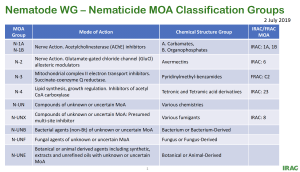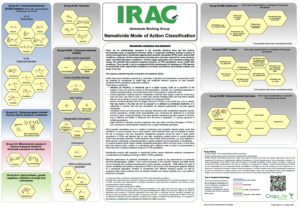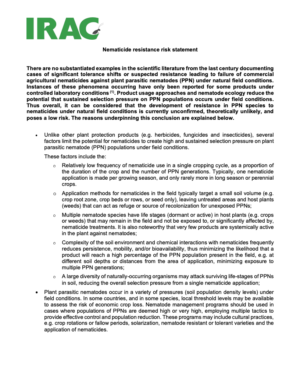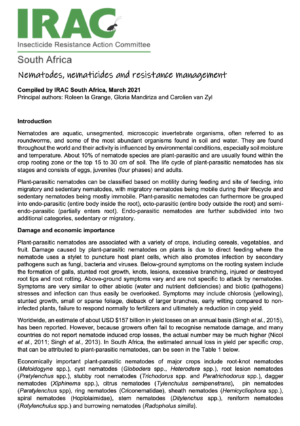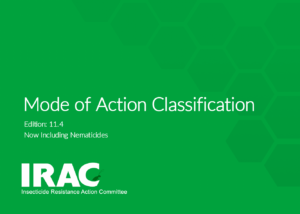The IRAC Nematode Working Group is the most recently established IRAC team. The initial objectives of the team will be to investigate the resistance risk of nematicides and to develop a mode of action classification scheme similar to that available for insecticides and acaricides.
There is clear evidence that nematicide resistance can occur under laboratory conditions, but it is less clear if field resistance can occur under natural conditions. There is however some evidence to show that increased degradation of nematicides and other pesticides can occur through increased microbial activity in the soil (not classical resistance, but with similar impact). Enhanced pesticide metabolism in soil, tends to be chemical class specific, which means nematicide/insecticide rotation or reduction in application intervals can slow its occurrence.
Resistance risk can vary significantly between crops, with row crops being considered a low risk (low number of applications), whilst others receive multiple applications per year/season (e.g. banana, vegetables).
